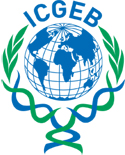International Centre for Genetic Engineering and Biotechnology
This article has multiple issues. Please help improve it or discuss these issues on the talk page. (Learn how and when to remove these template messages)
|

The International Centre for Genetic Engineering and Biotechnology (ICGEB) - was promoted by the United Nations Industrial Development Organization (UNIDO) as a centre of excellence for research and training in genetic engineering and biotechnology for the benefit of developing countries. The Centre, currently under the direction of Francisco E. Baralle, has three Components: Trieste, Italy, New Delhi, India and Cape Town, South Africa and comprises a network of 40 Affiliated Centres (national laboratories located in developing countries).
Created and developed as a special UNIDO programme under the direction of Arturo Falaschi, on February 3 1994 the ICGEB acquired the status of Autonomous International Organisation, although it remains within the United Nations system.
As of 2013, the ICGEB Statute has been signed by 82 states, most of these developing countries, and of these 62 are currently full members of the Centre.
It carries out its work of scientific cooperation by the following means:
- research programmes conducted in the Component laboratories;
- a 3-4 year international research doctorate programme in molecular genetics and biotechnology, conducted in collaboration with the Scuola Normale Superiore of Pisa (SNS) or validated by the Open University, UK or other National Universities;
- short-term post-doctoral study grants (maximum three months);
- long-term post-doctoral study grants (1–2 years) for the training of researchers through participation in the above-mentioned research programmes;
- a series of theoretical and practical courses and conferences on genetic engineering and biotechnology in Trieste, New Delhi, Cape Town and the Affiliated Centres;
- collaborative research programmes undertaken in Member States with ICGEB financial support (grants) ;
- scientific services for member countries, including the supply of sophisticated reagents for scientific research and a telematic network for the analysis of the human genome and other important organisms.
